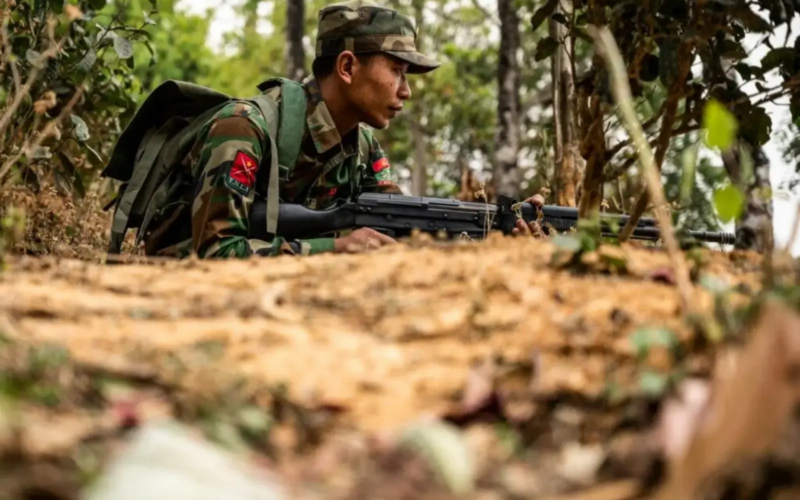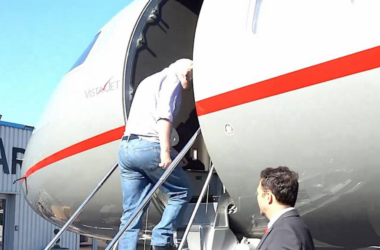An alliance of ethnic armed groups in Myanmar has accused the military junta of violating a China-brokered ceasefire agreement multiple times this month, leading to civilian casualties in the northern part of the country.
The “Three Brotherhood Alliance,” comprising the Ta’ang National Liberation Army (TNLA), the Myanmar National Democratic Alliance Army (MNDAA), and the Arakan Army (AA), claims that junta forces have breached the truce by conducting airstrikes and drone attacks.
Beijing facilitated the ceasefire in January after extensive conflict displaced over half a million people near the China-Myanmar border. This agreement allowed the alliance to maintain control over significant areas in northern Shan state, which they had captured in prior offensives.
On Wednesday, the TNLA reported that junta troops launched an airstrike on their positions near Mogok, a key area for ruby and gem mining. According to the TNLA’s statement on their Telegram channel, this attack resulted in the death of one civilian and injured three others, including a 10-year-old child.
A day earlier, a drone attack by junta forces had killed one TNLA member and seriously injured four others. The TNLA accused the junta of continuous violations throughout the month, including shelling their positions, cutting off roads, and restricting essential goods to towns under TNLA control.
Efforts to reach a junta spokesperson for comment were unsuccessful.
In October of the previous year, the alliance initiated a surprise offensive across northern Myanmar, capturing several towns and crucial border areas essential for trade with China. This operation significantly impacted the junta, which is grappling with financial challenges and international isolation. The resulting disruption saw a nearly one-third decline in border trade with China during April-May compared to the previous year, as reported by junta-controlled media.
China has continued to mediate between the military and the alliance, hosting follow-up peace talks in Kunming last month. However, sources close to the MNDAA indicated that substantial progress was lacking, with plans for future meetings still in place.
Myanmar’s border regions are home to numerous ethnic armed groups who have been in conflict with the military over autonomy and resource control since the country’s independence from Britain in 1948. While the situation in Shan state has seen a reduction in conflict, the AA has intensified its efforts in western Rakhine state, seeking greater autonomy for the ethnic Rakhine population. Their operations along the borders with India and Bangladesh add further pressure on the junta, already besieged by widespread opposition across Myanmar.








